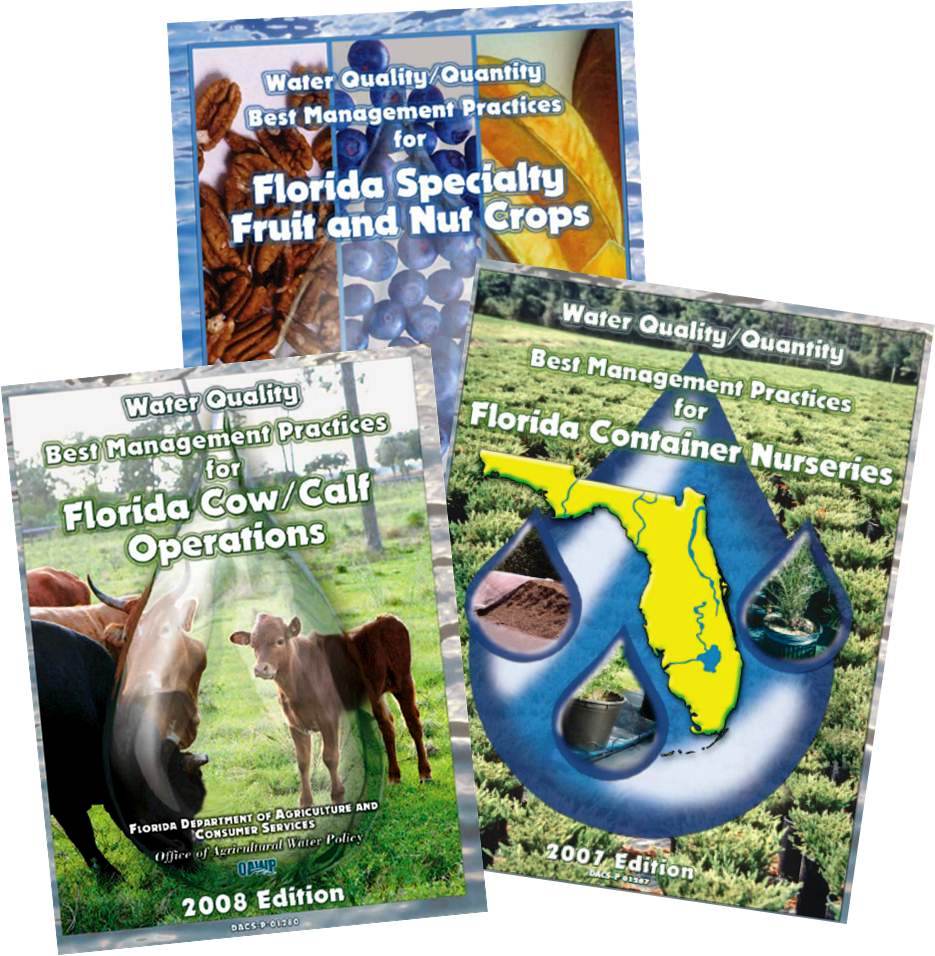Submitted by Rance Ellis, FDACS OAWP
Agriculture often is in the spotlight, some might say the bull’s eye, when environmental issues are raised. This is partly because agriculture is visible; people can see a farmer on a tractor and irrigation systems operating, and may not understand the decision-making and risks involved in running a farm. They may think that farmers and ranchers are not concerned about how much water they use or whether they are harming sensitive resources with fertilizers and pesticides.
But Florida producers depend on the land for their living and know they need to be good stewards by avoiding and reducing environmental impacts.
While some agricultural activities have the potential to affect our water resources adversely, well-managed farm, ranch, and forestry lands provide important benefits to the environment. Much agricultural land is in its natural or near-natural state, helping to recharge ground water, protect open space for wildlife, and absorb carbon dioxide in soil, trees, and crops.
And, despite the visibility of agriculture, folks tend to forget that farms, ranches, and forests produce the food they eat, fiber for clothes and other materials, wood products, and so much more. Agriculture exists to meet human needs.
In order to avoid or reduce the adverse impacts to water quality and water supply agriculture might have, producers can implement agricultural best management practices (BMPs). These are practical, cost-effective measures, some of which can make an operation more efficient and reduce costs. Typical practices include:
- Nutrient Management to determine nutrient needs and sources, and manage nutrient applications (including manure) to avoid or reduce impacts to water resources.
- Irrigation Management to address the method and scheduling of irrigation to lessen water and nutrient losses.
- Sediment and Erosion Control to reduce or prevent the transport of nutrients and sediments from production areas to waterbodies.
BMPs are an important non-regulatory tool for farmers and ranchers to keep their operations environmentally friendly. In fact, the Florida Legislature established BMPs as the preferred means for producers to help protect water quality, rather than requiring additional regulation.
The Florida Department of Agriculture and Consumer Services (FDACS) now has BMP programs for cow/calf, citrus, sod, vegetable and field crops, equine, specialty fruit and nut, and container nursery operations. In developing the practices, FDACS involved producers and producer groups, University of Florida scientists and extension agents, and other agencies and groups.
Florida farmers and ranchers have enrolled more than 3 million acres of land in the FDACS BMP program, not counting forestry and aquaculture. In the northwest Florida area, there are more than 59,000 acres of agriculture enrolled in FDACS BMPs, with row crops in the lead at 28,924 acres and cow/calf a close second at 26,627 acres.
A demonstration of environmental responsibility through implementing BMPs helps preserve agriculture in the state because when people see the level of commitment to water resource protection they are more likely to support this non-regulatory approach.
Producers, you already may be implementing most of the BMPs that would apply to you, through the way you manage your operation. But enrolling in FDACS BMPs gives you some advantages you won’t otherwise have.
When you enroll in and implement the practices applicable to your operation, you have a presumption of compliance with state water quality standards. Also, implementing FDACS BMPs gives you protection under the Right to Farm Act from duplicative local government regulation; local governments cannot regulate an activity you are conducting if you are doing BMPs that address that activity. Participating in the FDACS BMP program also makes you eligible for cost share when it’s available.
Participating in FDACS BMPs = More efficient operation, enhanced environmental protection, less state and local regulation, and potential for cost share. So, what’s stopping you?
For more information, and for assistance in enrolling in BMPs, contact:
Rance Ellis at (850) 394-9124 ext. 130 or Rance.Ellis@FreshFromFlorida.com
Or visit www.FloridaAgWaterPolicy.com
 0
0

